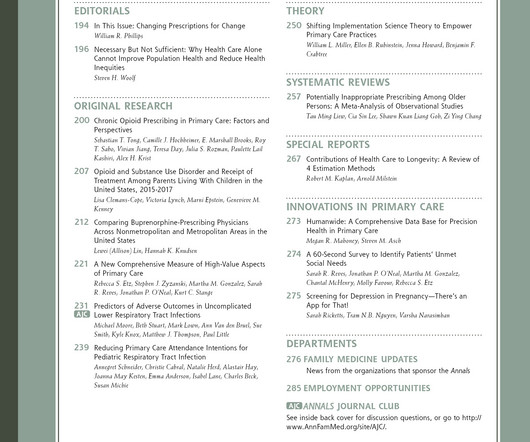Exposure to high-priority drug-drug interactions among non-elderly adults in Quebec: a cohort study [Prescribing and pharmacotherapeutics]
Annals of Family Medicine
NOVEMBER 20, 2024
Context: Prescribing is the most-used intervention in primary care, and most prescriptions are issued in primary care. 2) Hazard ratio for an adverse event (emergency room visit, hospitalization, or death). Results: 1) 11.7% (95% CI: 11.5-12.0) Results: 1) 11.7% (95% CI: 11.5-12.0)













Let's personalize your content